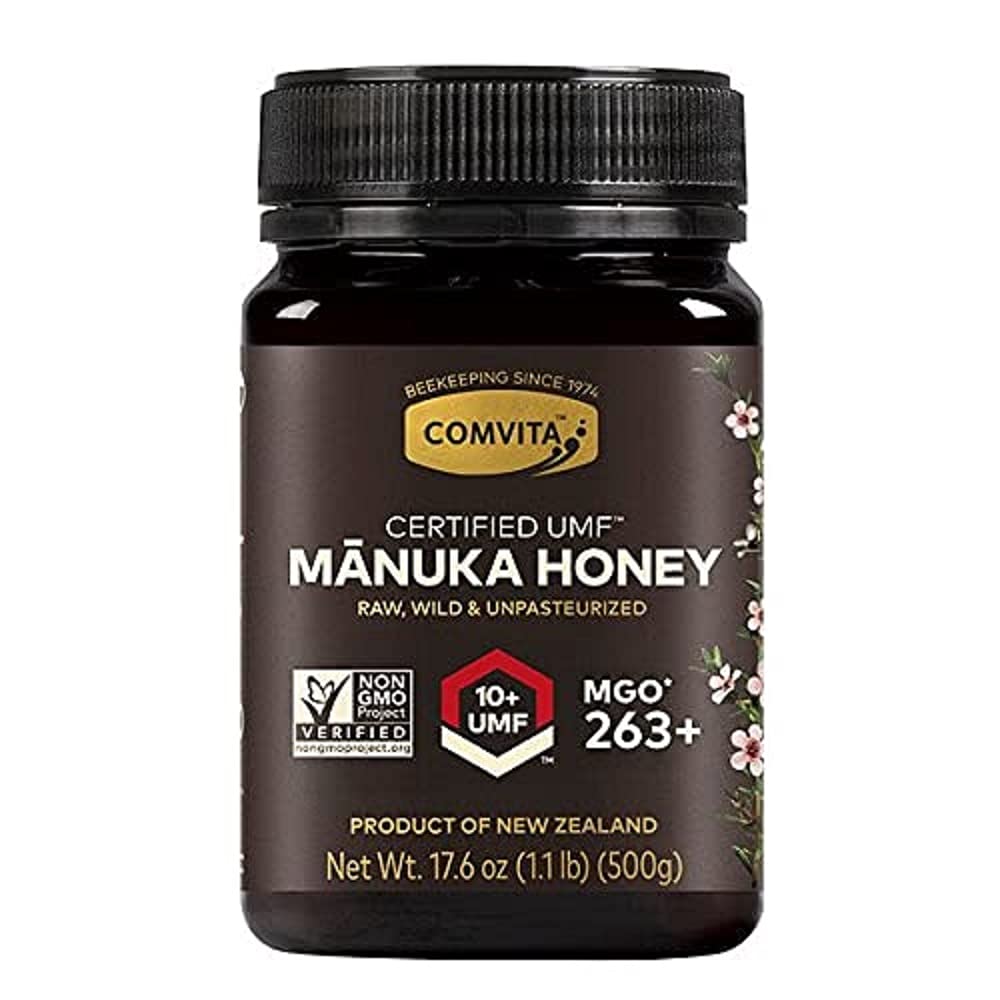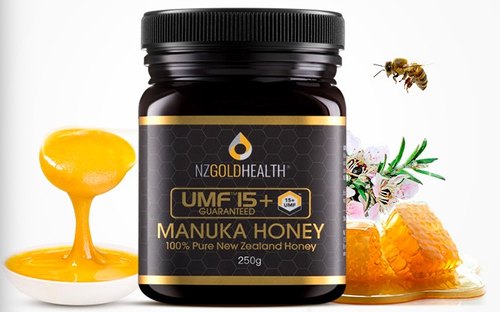
The benefits of manuka honey make it one of the most popular types of honey. This luxurious honey comes from bees that feed on the manuka bush in New Zealand. It contains some other qualities that make it special. Since this honey is rich in sugar and has a low acidity, it is able to thwart the growth of bacteria. Manuka honey contains a group of antioxidants called phenols, which contribute to honey’s antibacterial and anti-inflammatory properties, antibacterial properties, and it is used to treat wounds and fight acne.
One tablespoon contains 70 calories and 16 grams of sugar, without any protein or fiber. It gives you the energy you need to feed should be treated like any other added sugar. But the American Heart Association recommends that men consume no more than 36 grams of added sugar per day and that women consume no more than 25 grams.
While Manuka honey is sugar, it is a simple sugar, unlike refined sugars that contain sucrose. This makes energy absorption much easier, but it also has nutritional advantages over other sugars, providing other nutrients.
Manuka honey contains some amino acids, which are essentially the building blocks of protein that contribute to growth and function, B vitamins that have many roles including releasing energy from food, calcium for strong bones and teeth, iron for the production of healthy red blood cells, and potassium which Helps the heart muscle function properly, and zinc to treat wounds.
Health benefits of manuka honey:
1- Manuka honey helps heal wounds:
Manuka honey is probably best known for its wound-healing properties because, when applied directly to a wound, it may improve the healing process and reduce pain — so much so that the U.S. Food and Drug Administration approved it as a wound treatment option in 2015.
Manuka honey offers collective antimicrobial, antioxidant, and anti-inflammatory properties that studies have shown may offer potential for wound healing and tissue regeneration, acute wounds, diabetic sores, and eyelid wounds after surgery.
A 2017 study of patients undergoing eye surgery compared how topical administration of manuka honey versus petroleum jelly affects wound healing. Manuka honey actually resulted in fewer scarring compared to Vaseline. But more research is needed before starting to apply manuka honey to open wounds, but the results that have appeared so far have been promising.
2- The benefits of manuka honey in the treatment of cancer:
Because manuka honey has antioxidant properties, scientists have studied its potential and the ability of manuka honey to treat cancer cells. A test-tube study conducted on mouse cancer cells showed that a combination of manuka honey and the chemotherapy drug paclitaxel inhibited tumor growth by 33 percent.
3- Manuka honey is antiviral:
A 2014 study of manuka honey showed that it efficiently inhibited influenza viruses, and another study found that it had a significant in vitro activity against shingles. However, more research is needed in this area before any firm conclusions can be drawn, as no human trials have been conducted so far.
4- Manuka honey soothes a sore throat :
Hot honey and lemon drink is an age-old home remedy for the common cold, but studies have corroborated this claim. A 2010 study showed that honey was more effective at coughing in children than over-the-counter cough suppressants.
5 – Benefits of manuka honey for the health of the digestive system:
Research has also shown that Manuka honey can help protect against stomach ulcers, by providing an anti-inflammatory effect. It also offers potential like prebiotics, which contain a non-digestible food known as oligosaccharide, which helps improve levels of “good” bacteria in our digestive system. Including bifidobacteria and lactobacilli.
Additionally, there is some evidence that manuka honey can help treat other gut infections from strains such as Clostridium difficile, a bacteria that causes symptoms such as colitis, as well as Helicobacter pylori that can cause ulcers.
6. Manuka honey is good for runners:
This honey is a type of carbohydrate and can be used to fuel physical activity thus aiding in energy use and performance. Studies also show that the antioxidants in Manuka honey may help relieve post-workout inflammation.
What is the appropriate dose of manuka honey?
A maximum of 2 teaspoons per day (15g) is a good proportion of Manuka honey, as it has many impressive health benefits, yet is still very high in sugar. And if you’re using manuka honey as part of a balanced diet, try sprinkling it on porridge, overnight oats, or natural yogurt.
How to buy the best type of manuka honey :
- First verify that it is from New Zealand and that it bears the UMF seal and trademark. It stands for Unique Manuka Factor and is a premium quality brand given to licensed beekeepers, producers and exporters of genuine Manuka honey. You’ll also see a number like 10+ or 25+ and the higher the number, the better in terms of nutritional benefits – but the more expensive the product.
Is manuka honey safe for everyone?
- Honey is safe for most adults, however, and you should avoid it if you are allergic to honey.
- People with diabetes need to be careful about their blood sugar levels when consuming Manuka honey, as it is high in sugar.
- The NHS also advises against giving honey to children under one year of age because it sometimes contains bacteria that can cause serious illness in infants







